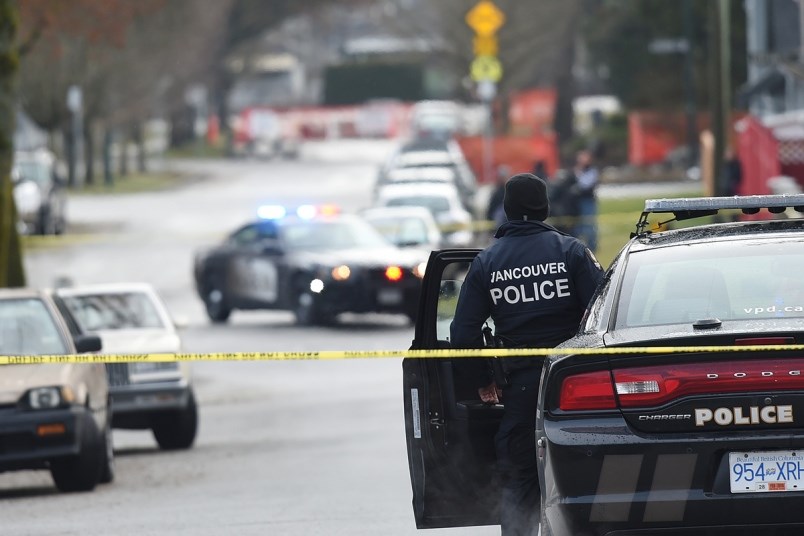A new statistical report from the Vancouver Police Department that compares data for the first three months of this year to the same period in 2020 also shows drops of more than 28 per cent in break-ins to homes and businesses.
The report pointed to a combination of factors that can be attributed to the decreases in crime, including more people working from home, fewer motorists on the road and businesses either shuttered or operating at reduced hours.
In a separate report released in February, police suggested the availability of pandemic relief payments, including the Canada Emergency Response Benefit, could be attributed to a decrease in “low-level property crime.”
The suggestion was that people on low or no incomes and addicted to illegal substances no longer had to resort to crime to pay for their untreated addiction.
Here are some of the statistics for the first three months of 2021 compared to the same period in 2020:
• Violent crime dropped from 1,452 incidents to 1,375, representing a five per cent decrease.
• Assaults, which account for most violent crime, dropped from 1,164 in 2020 to 1,107 this year, although the southwest part of the city saw assaults increase from 176 in 2020 to 219 this year.
• Business break-ins dropped from 831 to 591.
• Residential break-ins are at their lowest in the past decade, dropping from 305 to 218.
• Break-ins to vehicles, which have been on a downward trend since the pandemic was declared last March, decreased from 3,611 to 1,721.
• The number of calls for service decreased to 55,788 from 62,532.
• The average “priority one” response time of nine minutes, 47 seconds was eight per cent or 51 seconds faster, and total number of priority one calls received was 2.5 per cent lower.
• Officers attended fewer motor vehicle incidents with injuries — 135 compared to 172.
The report included the number of apprehensions police made of citizens under the Mental Health Act, which is done when an officer believes a person is a harm to themselves or someone else.
Officers apprehended 704 people in the first three months of this year and took them to a physician compared to 595 last year.
The 10-year trend for apprehensions under the Act are up 13 per cent overall when comparing annual data from 2011 to 2020.
The number of hate crimes was not included in the report, although year-end statistics showed that anti-Asian hate crime incidents soared by 717 per cent from 12 in 2019 to 98 last year.
Meanwhile, public complaints of alleged misconduct against VPD officers have gone from 166 in 2017 to 240 last year. In between, there were 194 complaints in 2018 and 224 in 2019.
At the same time, the number of “substantiated investigations” of the complaints has not reached more than 16 per cent, according to a separate report from the VPD’s professional standards section.
The statistical reports come as officers spent a busy past weekend responding to a homicide, several other crimes and parties on beaches that triggered Mayor Kennedy Stewart to tweet:
“I know it’s been a long winter, I know it’s frustrating not being able to see your friends, but now is not the time to be gathering in large groups. I’ve been in contact with Chief Palmer and after a busy weekend the VPD will be reassessing their approach to outdoor parties.”
The mayor’s tweet prompted Sgt. Ralph Kaisers, the president of the Vancouver Police Union, to tweet back at Stewart, writing: “Sorry mayor that we couldn’t get to the large gatherings earlier. We just don’t have the resources to deal with everything on our plate.”
In December 2020, Stewart and a majority of city councillors voted not to approve a police-board recommended operating budget of $322 million for the VPD this year.
Instead, they reduced the budget request by $5.7 million, leaving the VPD with an operating budget similar to 2020 funding levels. The board has since appealed council’s decision with the director of police services in Victoria.
@Howellings



